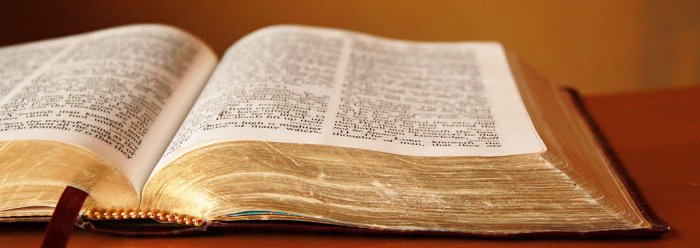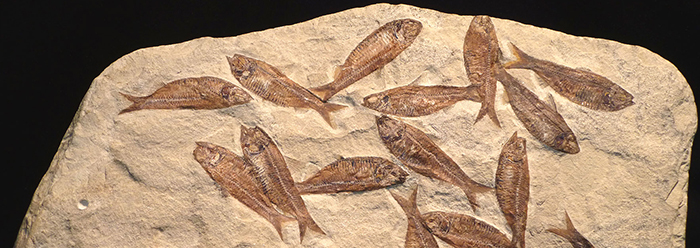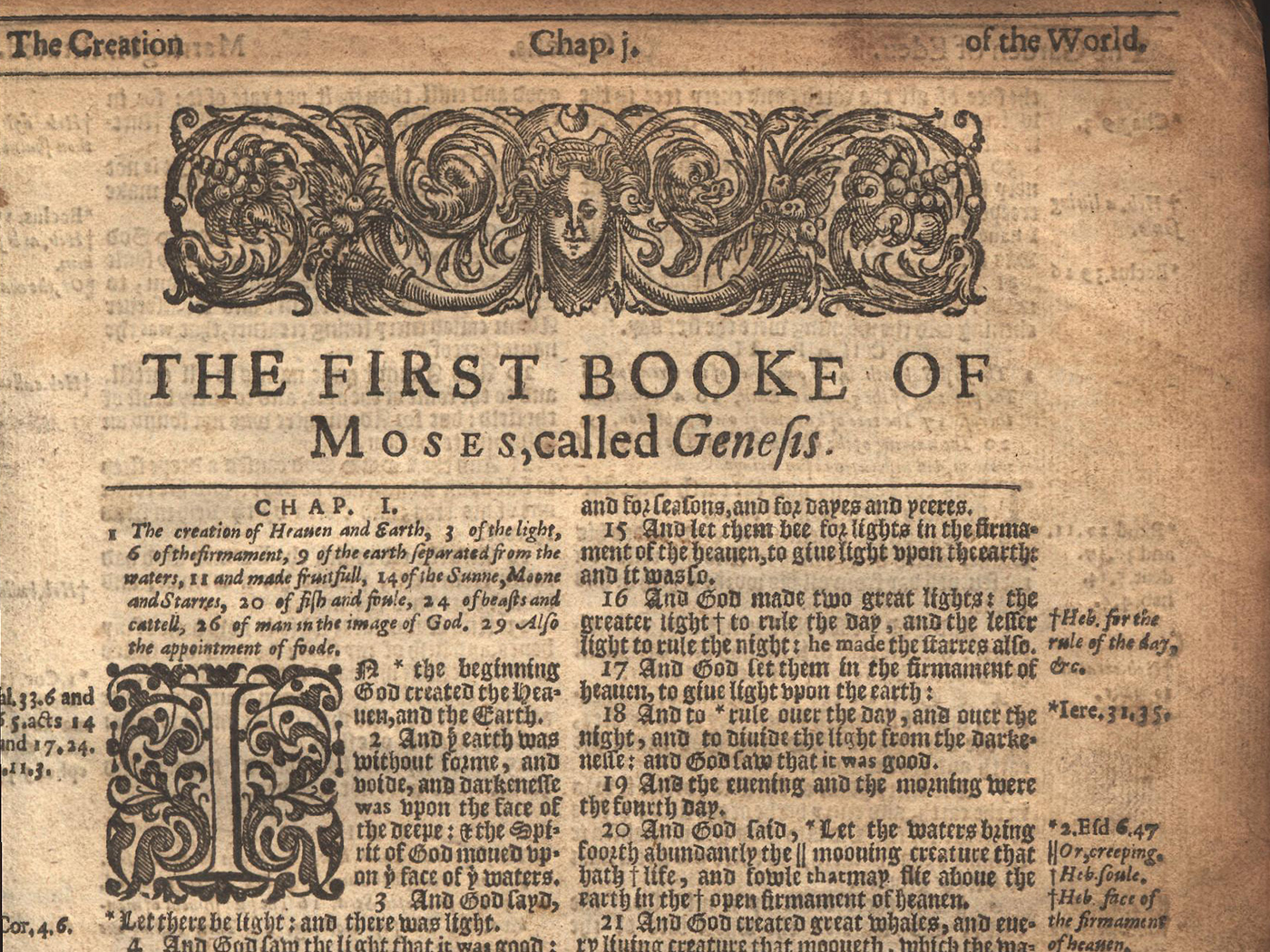Search Tools
New Defender's Study Bible Notes
6:7 two hundred pennyworth. The Greek word for “penny” is denarius. One denarius was a day’s wage for an unskilled laborer (Matthew 20:2), so that two hundred denarii would represent about seven months’ wages.
6:14 the miracle. This is the fourth of the seven great miracles of creation described by John (see John 20:31), to demonstrate the deity of Christ. In this case, Jesus superseded the law of conservation of matter by creating a great amount of bread and meat for the multitude. This law, considered one of the most basic and universal laws of physics, states that matter (or “mass”) can neither be created nor destroyed. The miraculous feeding of the multitude is one of the few events described in all four gospels (see Matthew 14:13-21; Mark 6:32-44; Luke 9:10-17).
6:14 that prophet. The “prophet” mentioned here was the subject of one of the instances in which, as Jesus said, “Moses…wrote of me” (John 5:46). In Deuteronomy 18:15,18, God had said to Moses: “I will raise them up a Prophet,…and will put my words in His mouth.”
6:19 thirty furlongs. He was “in the midst of the sea” (Mark 6:47). Also see note on Luke 24:13.
6:19 walking on the sea. This fifth miracle of creation described in John’s gospel was also a fulfillment of the Messianic prophecy of Isaiah 43:2. “When thou passest through the waters, I will be with thee; and through the rivers, they shall not overflow thee.” In this instance, Christ evidently created an anti-gravitational force of some kind, enabling Him to set aside the most basic of all scientific laws. The law of conservation of energy stipulates that energy (that is, the capacity to accomplish work, moving forces through distances) be neither created nor annihilated. Jesus, as the Creator, alone can supersede or extend this law.
6:29 the work of God. All man-made religions involve systems of works (that is, works capable of being achieved by man) as prerequisites to salvation. The Christian faith alone is based solely on faith in the finished work of Christ. The “works of God” (John 6:28) are impossible to attain, requiring absolute obedience to God’s law (Deuteronomy 27:26; James 2:10) to be acceptable to God. Only Jesus in His perfect humanity was able to accomplish this, but His righteousness is imputed to all those who believe on Him apart from works (Romans 4:5). This is possible only because He, perfectly righteous Himself, could then voluntarily and in love bear “our sins in His own body on the tree” (I Peter 2:24). Jesus had just cautioned them to work “not for the meat which perisheth, but for that meat which endureth” (John 6:27).
6:30 What sign shewest thou. As they often did, the Jews required some miraculous sign before they would believe (e.g., John 2:18; 4:48). On one occasion, Jesus said He would give them no sign, except that of Jonah (Matthew 12:39). Nevertheless, He did perform many miracles—not to satisfy human doubt or curiosity, but to meet human needs—and John selected seven of these (see note on John 2:11) to encourage belief that He was, indeed, the Son of God (John 20:30-31).
6:33 cometh down from heaven. They claimed that Moses had authenticated His authority by giving them the sign of the manna. Jesus not only denied their demand for a sign from Him, but denied that the manna was a sign from Moses. It was, rather, a gift from God. Then, in effect, Jesus told them that He Himself was their sign, having been sent from heaven as God’s bread of life.
6:35 the bread of life. There are seven great “I am” claims of Christ recorded in the Gospel of John (see also John 8:12; 10:9; 10:11; 11:25; 14:6; 15:1). Each of these amounts to an assertion of deity, amplifying His great claim to be the “I am” (see note on John 8:58).
6:35 shall never thirst. These promises obviously apply to spiritual hunger and thirst, but the crowd had wanted to apply them to their physical wants (John 6:26,34).
6:37 cast out. This remarkable claim both asserts that no one can come to Christ merely of his own volition (though he may think, sincerely, that he is doing so, not being consciously aware of all the influences God has been bringing on him in order to lead him to that decision) and also promises that none so led of the Father to Christ can ever be cast out. This involves the mystery of divine election versus human freedom. Both are true, because both are taught in Scripture, but our human minds are incapable of full comprehension of this divine paradox.
6:38 down from heaven. At least eight times in John we are told that Christ came down from heaven—six times in this chapter (John 6:33,38,41,50,51,58) and twice in John 3 (John 3:13,31). Seven times it is said either than He came from above or from God (John 3:2,31; 8:42; 13:3; 16:27,28; 17:8).
6:44 hath sent me. At least forty-two times in John’s gospel we are told, usually by Christ Himself, that He had been “sent” into the world by the Father.
6:49 manna in the wilderness. The Lord Jesus here confirms the historicity of the miraculous feeding of the Israelite multitudes during their wilderness wanderings.
6:55 my blood is drink. It should be obvious here that Christ is speaking of the symbolic food and drink represented by His flesh and blood; it would be cannibalistic, even if it were physically possible, to actually eat and drink His physical flesh and blood. He made this clear in John 6:63, when He explained: “The words that I speak unto you, they are spirit, and they are life.” This spiritual concept was later to be incorporated in the institution of the Lord’s supper (I Corinthians 11:23-26).
6:59 in the synagogue. This synagogue may be the one built by the Roman centurion out of respect for the Jewish people (Luke 7:1, 5). It is interesting that the remains of an ancient synagogue still exist at the site of Capernaum.
6:66 went back. It is possible, therefore, to be a “disciple” of Christ yet not a true believer, for these disciples would not have gone back otherwise (note John 6:39; also I John 2:19). It may be only coincidence, since the verse divisions were not in the original autographs, but it is at least worth noting (in light of the significance of the number 666—see Revelation 13:18) that this verse, John 6:66, which marks those disciples who were false disciples, is the only “6:66” verse in any of the twenty-seven books of the New Testament. Note also John 6:70.
6:70 is a devil. Judas was not a true disciple, but he did not “go away” (note John 6:66) at this time. He continued with the twelve until he could find opportunity to betray Jesus. Even at this time, however, he was a “devil.” The Greek word here is diabolos, and usually refers to the Devil. It seems most probable that Satan was already controlling Judas, though he didn’t “enter into” him and fully possess him until later (Luke 22:3).














